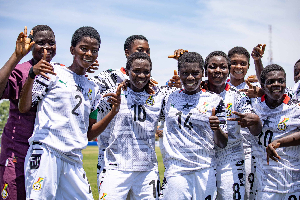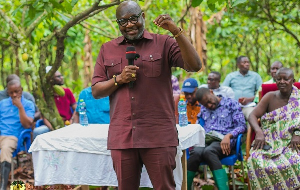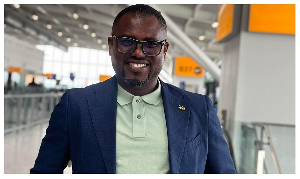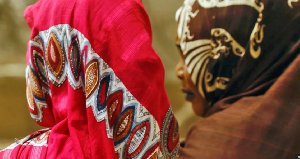Dr Gabriel Gbiel Benarkuu, the President of the College of Community and Organization Development (CCOD), has called for intensified voter education to reduce rejected and spoiled ballots in the December 7, general elections.
As the nation braced up for the presidential and parliamentary elections, Dr Benarkuu noted education on the electoral and voting processes had not gone down well with the majority of the electorate at the grassroots.
This possibly could lead to a high number of rejected and spoiled ballots in the polls, he stated at a news conference to highlight the outcome of a research conducted by the College.
Dr Benarkuu noted the Election 2020 was very close, hence the need for all election stakeholders to support in up-scaling public education on particularly voting procedures.
“This requires a broad base action from all stakeholders to propagate electoral information and voting procedures to the voter population in rural areas,” he said.
The research, he explained, was to assess the perception of Ghanaians on elections and political party manifestos.
According to the research, the presidential and parliamentary elections were crucial to deepening and consolidating the gains of the nation’s multi-party democracy.
Dr Benarkuu implored election stakeholders, including political parties, Electoral Commission, media and civil society actors to contribute their quota towards facilitating peaceful and successful general elections.
According to him, the majority of Ghanaians believed in and cherished the multi-party system of government, saying political parties needed to conduct issue-based and clean campaigns that would enable the electorate to make informed choices when they go to polls.
“Political parties and their communicators should also endeavour to focus on, and sell their party ideologies, philosophies and visions to the electorate,” Dr Bernakuu added.
He called on the government to adequately resource the National Commission for Civic Education (NCCE) to enable it to intensify year-long civic education to the masses.
As the embodiment of the people, Dr Benarkuu called on traditional authorities to set up committees to work towards peace-building in their respective areas.
He said Act 999 outlawed political party vigilantism and appealed to law enforcement agencies to deal with people who engaged in the act of vigilantism and related violence in order not to mar the beauty of the general elections, threatening the nation’s fledgeling democracy.
The media, Dr Benarkuu indicated, played a key role in ensuring peaceful elections, and appealed to the Ghana Journalists Association (GJA) to ensure high ethical standards in the media space in order not to plunge the nation into chaos.
Regional News of Friday, 4 December 2020
Source: GNA













